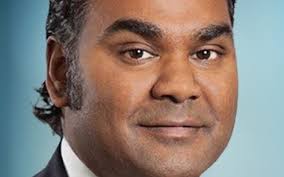

Jason Xavier, head of EMEA ETFs Capital Markets at asset manager Franklin Templeton, expects environmental, social and governance exchange-traded funds to double their inflows in 2022.
Xavier said in a blog that nearly every ETF launch in 2021 had an ESG tilt, and that the momentum behind ESG investing in Europe continues to dominate many conversations.
ETFs have seen a global boom in interest over the past couple of years—will it continue? Our Jason Xavier shares his ETF industry 2022 outlook. https://t.co/gXKJfy970p
— Franklin Templeton (@FTI_Global) January 31, 2022
“The introduction of the European Union’s new Sustainable Finance Disclosure Regulation (SFDR) provided good tailwinds for this, and I see no reason for this trend to stop,” Xavier added.
He continued that 2021 was a record year for European ESG ETF flows, with net inflows of $87bn, more than double the flows in 2020.
“I believe investor interest in ETFs that align with the Article 9 classification under the SFDR directive should accelerate,” said Xavier. “Additionally, interest in ESG ETFs that offer a measurable impact should capture a greater percentage of the inflows this year.”
An Article 9 fund has sustainable investment as its objective.
Deutsche Börse reported that ESG ETFs were among the most popular categories as the German exchange’s ETF segment exceeded €1 trillion in 2021, a 39% year-on-year increase. 208 ESG ETFs were listed on Deutsche Börse last year, the highest number for a decade.
Turnover in ESG ETFs increased by 176% year-on-year to €33.6bn, 16.4% of total ETF trading turnover.
Stephan Kraus, head of Deutsche Börse’s ETF segment, said in a statement: “Continued strong growth in our ESG segment reaffirms how mission critical sustainability is for issuers and investors. We are working with issuers to expand this range further and meet ever higher levels of demand.”
The success story of ETFs on @Xetra continued in 2021 with a new €205 billion #trade volume record. Assets under management also reached a new high with more than €1 trillion.https://t.co/rf43AQqPIt pic.twitter.com/RqY63MduLo
— Deutsche Börse Group (@DeutscheBoerse) January 31, 2022
Karen Karniol-Tambour and Carsten Stendevad, co-chief investment officers for sustainability at hedge fund Bridgewater said in their 2022 outlook that the impacts of social and environmental considerations on capital flows have been modest relative to what they believe lies ahead.
They reviewed the disclosed equity holdings of a group of institutional investors that have publicly expressed significant interest in ESG with approximately $1.5 trillion in public equity assets. “We see they have made relatively slow moves so far, and only 4-5% of the mutual fund and ETF universe is currently in ESG-labeled funds,” said the report.
Going forward, they expect demand for quality ESG data and metrics to be a central theme.
“Investors will demand it, and regulators will increasingly require it,” they added. “What is reported tends to shift behavior: it’s very hard to track and manage toward what you cannot or do not measure.”
For example, carbon data could become what financial performance data is today as investors pay attention to these figures alongside corporate profitability.
“The combination of investors’ commitments to sustainability and standardized reporting could produce much larger and more coordinated shifts in capital flows and asset allocations, as well as company behavior, than what we’ve seen to date,” said Bridgewater.
Bridgewater believes there is significant room for ESG flows to increase as the number of investors prioritizing impact and sustainability rises.
“Sustainable investing’s largest impacts on relative stock valuations and the incentives facing public corporations are still ahead of us,” said the report.
Short-dated fixed income ETFs
Xavier also predicted that short-dated fixed income ETFs will see the largest relative assets under management increase in 2022.
He explained that the spike in volatility in March 2020 due to the Covid-19 pandemic showed that the ETF wrapper can be successfully used during times of market stress.
“This attribute has been vital for many investors navigating the recent bouts of pandemic volatility,” he added. “In our view, the record ETF net inflow numbers seen over the past two years reinforces the case for the ETF wrapper to serve as a core, tactical and liquidity vehicle that helps many investors meet their fixed income investment goals and objectives.”
As central banks are expected to increase interest rates, Xavier said many investors are likely to continue to position to the short end of the yield curve in 2022. As a result, short-duration ETFs will likely outperform broad, long-dated fixed income offerings this year.







